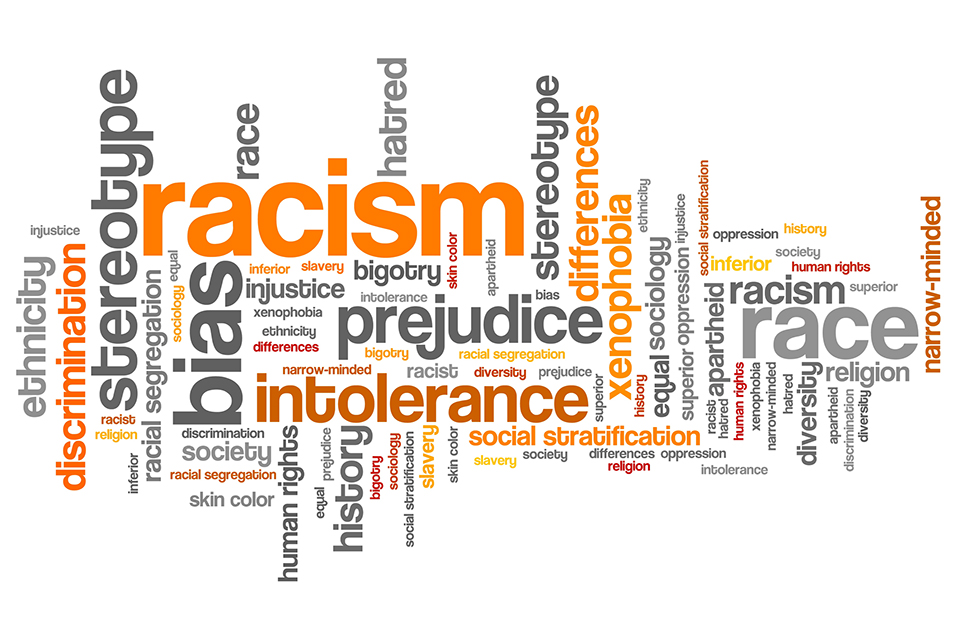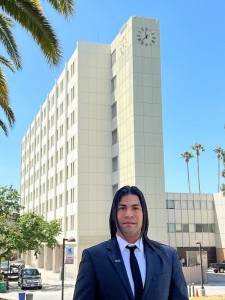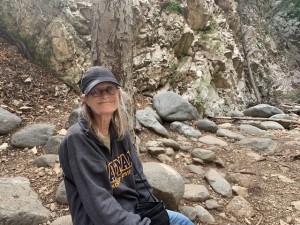CSUN Psychologists Create Roadmap for Educators Who Strive to be Antiracist

CSUN psychologists Jose H. Vargas and Carrie L. Saetermoe have developed a “roadmap” for educators that takes them on the journey to become antiracist and play a part in dismantling the systemically racist structures that stand in the way of their students’ success. Image by tupungato, iStock.
As some states take measures to inhibit discussions about racism and its impact on society, educators across the country are struggling to find ways to create safe spaces where their increasingly diverse students can reach their fullest potential.
California State University, Northridge psychologists Jose H. Vargas and Carrie L. Saetermoe have developed a “roadmap” for educators that takes them on the journey to become antiracist and play a part in dismantling the systemically racist structures that stand in the way of their students’ success.

Jose H. Vargas
“We’re asking our colleagues across all areas of education, including ourselves, to walk the talk,” Vargas said. “It’s one thing to say you are not racist, but the reality is that we have all grown up and worked in environments that were designed to support and elevate one group of people over all other groups. Generation after generation has accepted exclusive, discriminatory practices ‘because that’s the way things are’ or because we shouldn’t upset the status quo, especially if it benefits us, or because questioning makes people uncomfortable.”
“It’s incumbent on us to understand why things are the way they are—to ask the hard questions of the system and of ourselves,” Saetermoe continued. “It’s important for us, particularly as educators, to do this, or else we are never going to get the society we profess we want for our students—a society where racism in all its forms truly does not stand in their way to success.”
Their recommendations, “The antiracist educator’s journey and the psychology of critical consciousness development: a new roadmap,” are laid out in the most recent edition of the journal Educational Psychologist.
Vargas and Saetermoe, who work in CSUN’s Department of Psychology and Health Equity Research and Education (HERE) Center, acknowledge in their paper that many educators are “unprepared for the daunting but requisite self-transformational actions the underlie the achievement of racial parity.”
“We hope the roadmap we lay out will help them on their journey,” Saetermoe said. “It recognizes the psychological toll the journey may take. It’s not an easy journey, but one, particularly educators, that we all need to take.”
“And it’s one that we are still taking,” Vargas added. “Antiracist education is a life-long commitment, as it ought to be given human history. Racism is insidious and mutates to adapt to the present generation. Educators have a duty to remain vigilant and active at all times.”

Carrie L. Saetermoe
In their paper, Vargas and Saetermoe identify 15 interconnected components of the journey across four phases of “self-liberation.” Those phases include awareness, deconstruction, reconstruction and praxis, or action or practice.
The pair based their roadmap on their experiences as social (Vargas) and developmental (Saetermoe) psychologists, as well as their individual efforts toward becoming antiracist educators and persons. They admit the journey can be difficult and involves self-evaluation, interpersonal conflicts, and an examination of systems and policies long taken for granted.
“The quest for antiracist realization parallels the quests of mythical and contemporary ‘heroes’ who achieve system change through self-transformation and reward,” Vargas said. “The reward is an ‘ecosystemic lens’ whose acquisition drives the conversion of racist educational ecosystems into antiracist alternatives.”
Vargas said it will take a lifetime to unlearn many of the crutches people use to excuse or ignore racist behavior, such as “they’re from a different generation,” “you shouldn’t disrespect your elders” or “trust that everything will work out in the end.”
“Those are just excuses for people not saying or doing something when they hear or see something wrong,” he said. “It’s like the bystander effect. They don’t want to say anything because they are afraid of offending someone. But you can’t make change unless you say or do something.”
Vargas said the “cultural zeitgeist has reinvigorated conversations about systemic racism and it’s longstanding impact on education.”
“Educators confronting racism face challenges that can stifle their antiracism efforts,” he said. “Challenges are unavoidable facts of race consciousness development. Absent antiracist mentors and roadmaps, educators seeking to transform racist institutions are unprepared for the painful journey of self-liberation. Hopefully, our roadmap can provide a guide on their journey.”

 experience
experience